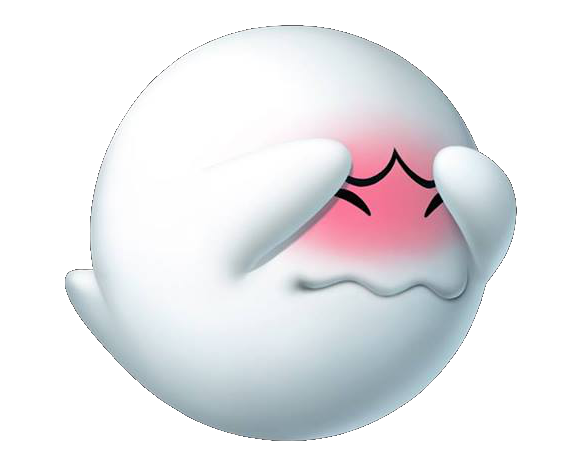I seem to hear from a variety of people that they struggle to fall asleep at night; but the difficult to fall asleep sounds like an evolutionary downside. Even as hunter-gatherers, being able to sleep whenever and wherever sounds like it would be an advantage.
Is it a recent product of modern times and people didn’t actually struggle with it a while back? In which case, what of modern life is causing this? If not, what is the evolutionary advantage of not falling asleep easily?
I would imagine our hunter gatherer ancestors had a far easier time falling asleep given their activity level during the day, their diet, and their lack of artificial lighting (particularly blue light).
That blue light thing is pseudo-science. Bodily activity though, yup, that’s a big one.
That blue light thing is pseudo-science.
You got a source for that?
Every source is pseudo-science, I only rely on my own research for anything. /s
I remember from the book “Why We Sleep” that our sleep cycle takes cues from both light and temperature levels throughout the day, which we isolated ourselves from in modern times. The day doesn’t end after sundown anymore thanks to lightbulbs, and many of us live at a constant temperature due to AC. That’s two clues of “night is near, prep to sleep” that we no longer receive. Maybe our ancestors had an easier time due to more consistent clues?
Actual insomnia has been documented forever, it’s something going wrong, but I do think struggling to sleep in general is our modern lifestyles. Back in my grandads day the majority of people got up early, went out to work hard physical jobs, came home exhausted, had dinner and maybe a bit of family time, then in bed by 9pm. Women at the time often stayed at home but that involved a lot more physical work than we do these days, you’d wash the clothes by hand, heat up the water in a pot for washing up, always busy.
Modern life is brilliant, we have more time to do stuff we enjoy, but we’re just not that physically challenged.
Some people can. In the bonus material for the LOTR extended edition, Elijah Wood talks about how he can fall asleep virtually on command, and this comes in very handy in film acting, where you often have many periods of waiting in between being able to work. Other cast corroborate this, commenting on seeing him sleeping frequently.
Years I I remember reading something about it as an evolutionary necessity. I have no reference now. Anyway it says that having in a tribe people accustomed to fall asleep at different times and in different condition allowed to have always at least one person on a watch for dangers coming from the outside. This does nor explain why people struggle to fall asleep for long hours, but at least it gives a partial explanation.
First, for something to be and evolutionary advantage, the people that struggle to fall asleep would have to die more easily or fail to reproduce, while in this case I can only see the opposite: dropping dead asleep regardless of the environment means to be an easy prey.
Secondly, the reason you probably see it as a downside is because of the hectic way most people go through life today, were you can hardly find a time to sleep; but it’s not that during our evolution we could hunt 16 hours/day, nobody was in an hurry :)
Sleep now is a lot more difficult than sleep 100 years ago.
Light matters. Blue light from computer screens has been tied to sleep issues. The theory is that it mimics certain bandwidths of sunlight that our eyes are primed to read as “daytime, get up and start moving.”
Hydration and food matters. You need to be in a good state but shouldn’t consume much right before bed.
Exercise matters. A lot of people have trouble sleeping if they move around a lot before bed. Since we have electric lights and can stay up very late doing stuff, it’s hard for your body to know it’s time to start winding down.
Best solution I’ve found: no caffeine after noon, consistent bed schedule (both going to sleep and waking up), black out curtains and/or sleep mask, earplugs/earbuds/brown noise track, and stop using screens an hour or two before bedtime.
You “kind of” can – depending of how exhausted you are.
t. Been on several situations where I was completely wasted and managed to hold myself just fine until I slammed my head on my bed.
I’ve had extreme difficulty falling asleep since being little, one of my earliest memories is of not being able to sleep and being up at 4am still.
Of course stuff like late-day caffeine; blue wavelengths of light; adrenaline from gaming / exciting TV; lack of exercise etc can all hinder sleep, but for some it’s a chronic issue. Melatonin is a big help but my current GP practice has gone to ridiculous (imo negligent) lengths to not prescribe it for me, and it’s hideously-expensive online here (UK).
My biggest tip is: get a colour-changing remote bulb for your bedroom & living room, set it to red light in the evening; and if you can manage it, do something that doesn’t involve electronics for 45mins before you plan to go to sleep. I try to read a book under red light.
This is because we have retinal cells that respond to blue wavelengths of light, to breakdown melatonin. Our bodies produce melatonin in the evening to make us sleepy; the bright white lights in our homes / TV etc are full of blue wavelength and actively disrupt our melatonin cycle.
This is very, very good advice. Thanks a lot for that, much appreciated. 🙏
I’d love to be able to sleep on command.
Usually I need to take a melatonin pill after tossing and turning before I get some sleep.
I’ve learned to fall asleep much faster as I’ve gotten older. I turn the tv off, put down my phone, get as comfortable as i can, and relax each body part for 3 breaths starting at my feet.
I tend to read e-books a bit to relax, but I read them from my phone and I think having the screen on causes sleeplessness. Vicious cycle!
Melatonin is a lot stronger than a lot of folks realize.
Drugstores will sell you a 10mg melatonin tablet that utterly crushes your endogenous production.
0.5mg taken earlier in the night may be plenty for many people.
The idea that taking melatonin orally causes your body to stop producing it is a myth.
We can’t? I’ve never had a problem. I simply lay down and turn my brain off. Asleep within 5 minutes.
I’m equally annoyed and admirative. Where do I sign in order to be you?






